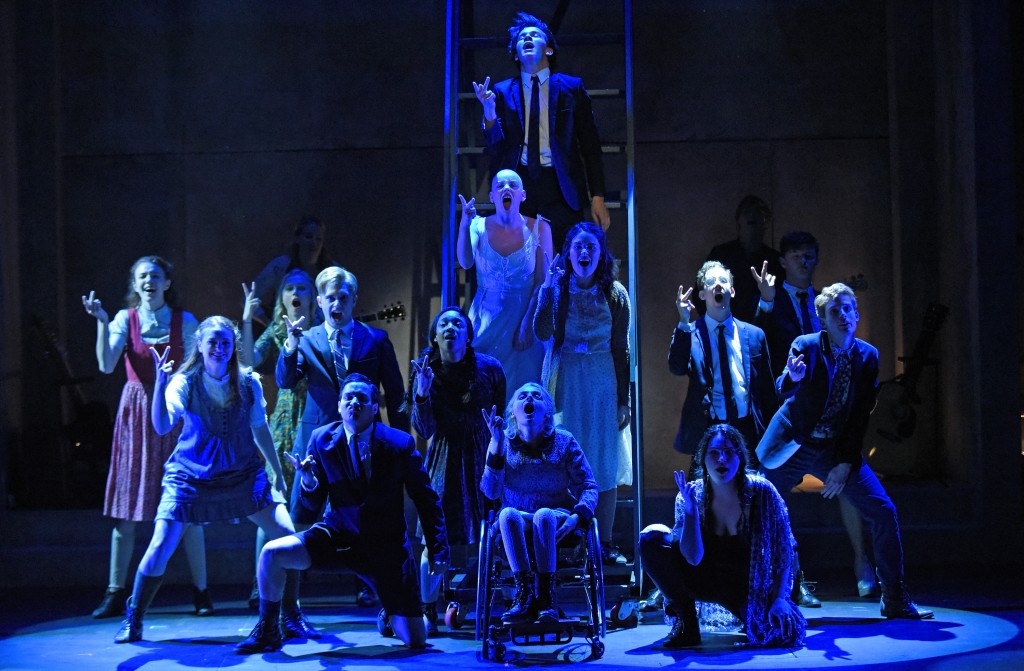
Don’t Eat my Hearing Aid!
October 5, 2015
Hear Haiti: A beautiful arrival in LaPlaine
October 12, 2015Broadway show with deaf actors is ‘enlightening in its diversity’

Theater goers can attest, when one leaves a musical they often walk away with the show tunes stuck in their heads. But a new Broadway revival is leaving the opposite impression, with most of the focus solely on the actors; half of whom are deaf. Deaf West Theater’s production of Spring Awakening, which opened in New York in September, stars eight deaf actors, eight hearing actors and seven onstage musicians, including Academy Award and Golden Globe winner Marlee Matlin.
The story, originally written as a play by Frank Wedekind in 1891, tells the story of “deaf students in a school that does not allow the use of sign language, implicitly nodding to a historical event (contemporaneous with the play’s setting in late 19th-century Germany) in which an international conference of educators called for the mandatory and exclusive use of oralism (lip reading and speech) when teaching deaf students,” according to the New York Times. Lauren Putz, a 19-year-old deaf female swing in the production, says that at the end of the day, the aim is for people to be able to connect to the different characters and experiences, and to believe in the impossible a little bit more. “I think this is such a significant time for the Deaf community and the rest of the world, and this show is enlightening in its diversity,” says Putz. Putz, who also wears Phonak hearing aids and was raised in a Deaf family using American Sign Language, says that while she’s able to follow the music and lyrics with her hearing aids, it’s the sign language that makes the production so moving. “The ASL fits in so seamlessly with the play and adds a beautiful depth to the story,” she said. “The way the music is expressed through the choreography and ASL makes for a visually stunning production.”
Watch Putz rehearse with her Spring Awakening colleges on YouTube (Putz at the at the .33 mark).
With the uniqueness of ASL integrated in the performances, Spring Awakening has been deemed the most accessible show on Broadway history. There is no special seating area for the deaf, and everything in the play is either spoken, signed or captioned, as well audio described performances for the blind, according to DJ Kurs, the artistic director of Deaf West Theatre in Los Angeles. Spring Awakening is on Broadway through January 24. Learn more about the production on its website.







